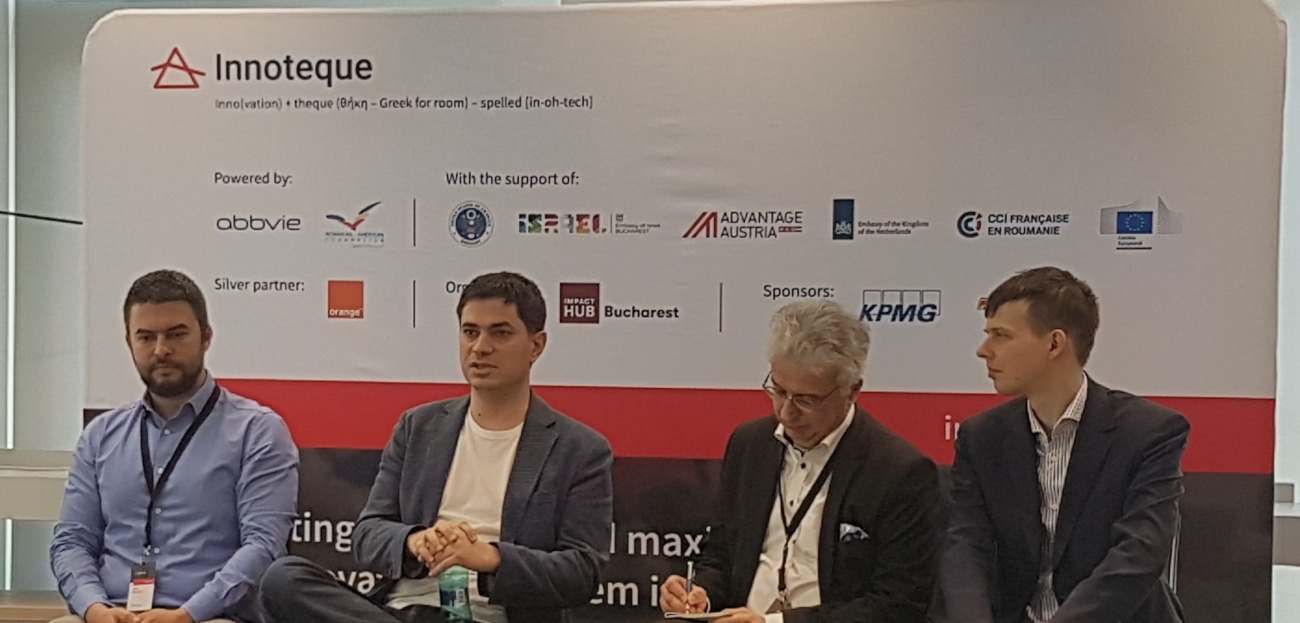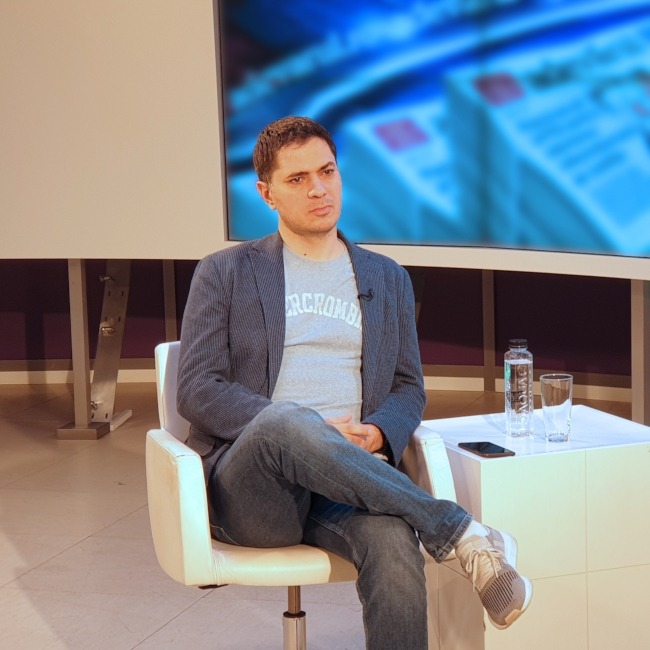Between March 28-29, entrepreneurs, professionals, and policymakers from Romania, US, Austria, and Israel got together at Impact Hub and shared approaches and strategies that foster innovation. Innoteque 2019 was all about sharing perspectives and experiences in what makes a successful innovation ecosystem.
CEO Ioan Iacob was one of the key speakers in a dynamic panel called “From Prototype to Mass Productions,” which addressed the main challenges that many businesses encounter on their way from start-up to scale-up.

Fellow speakers including Monica Obogeanu (Startup Programs Manager, Orange Romania), Mihai Rotaru (CEO Clever Taxi), Stefan Kanya (Central and Eastern Europe Sales Manager, AVL List GmbH) and Bogdan Ceobanu (Policy Officer, European Commission).
Ioan, however, tackled the pains in working with policies and governments and winning the international market, emphasizing the importance of company culture as the business grows.
Culture starts with how people behave
Think about culture in terms of behaviors. Because it’s mechanics that drive culture, not the other way around.
As a leader, you need to pay close attention to the types of behaviors that you want to encourage. You might not always be aware of it, but your actions and reactions have a big influence on your team.
If your team is not giving their best, do some introspection and see how your actions might have led to this outcome.
Let people take charge
Don’t hire people for execution, because AI is going to cover that anyway. Put people in charge and let them lead the way. They should be the ones to say “I’ve got this”. Give them room to take responsibility for everything they do. Whether it’s success or failure, they need to own it. The way you create and encourage ownership is up to you, but by all means, do it.
If you’re a command-and-control kind of leader, you won’t be giving people enough space to be themselves – let alone offer them opportunities so they can excel. Hence, they will turn into bystanders with minimum-to-zero interest in doing anything. And you don’t want that.
Use debriefing as an everyday tool
As you scale up, you’ll be dealing with more and more post-mortems, scrum reviews and the likes. If you want to use them right, do it this way:
- Encourage people to talk strictly about their work or contribution. Talking about mistakes and wins in terms of lessons learned makes it all confusing. It should all be very straightforward. Stick to your story – even if you have the worst thing to say about somebody else. Stick to what you did. Talk only about your work.
- Let the highest in the hierarchy speak up first. When the CEO shares what he/she did wrong or good, people feel safe to open up and share the good and the bad in their work. It’s a healthy way to create trust and teach your team to own success and failure.
In the long term, by running debriefing this way, the team will get used to approaching goals and milestones by thinking of what they can do, instead of what others should have done. It’s how you can smooth the path for deeply rooted ownership.



No Comments